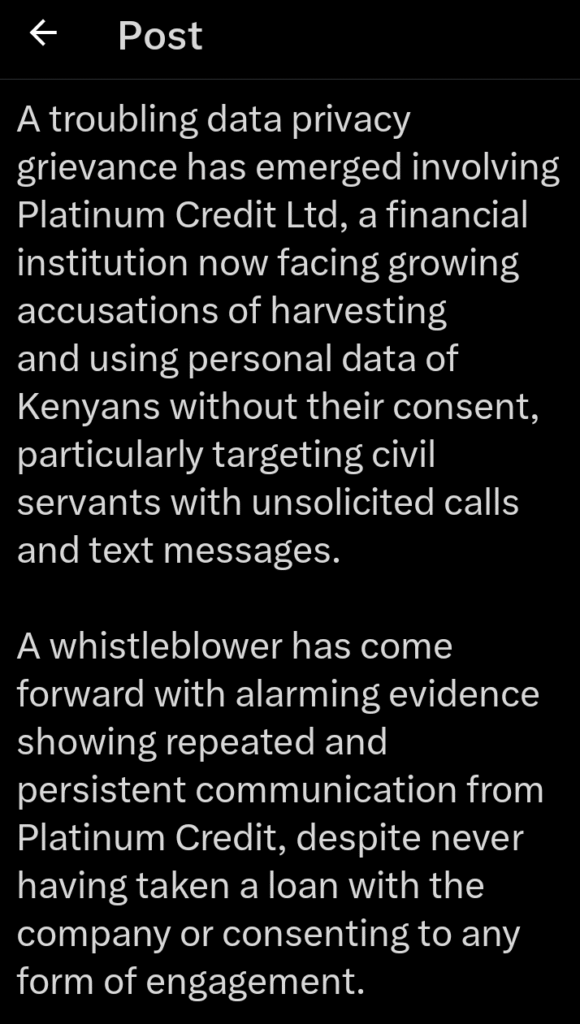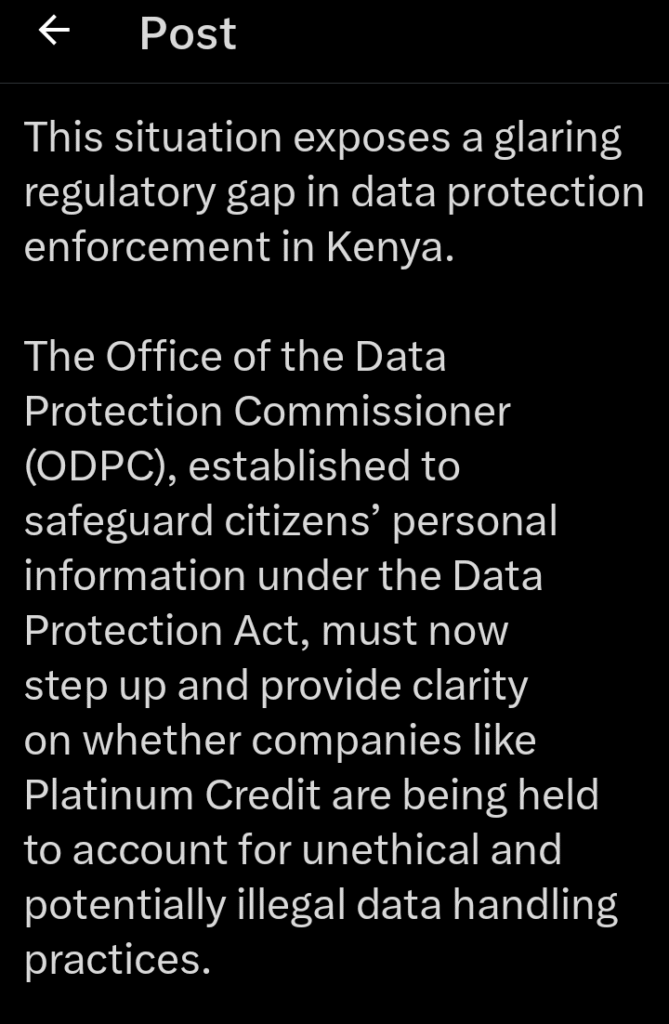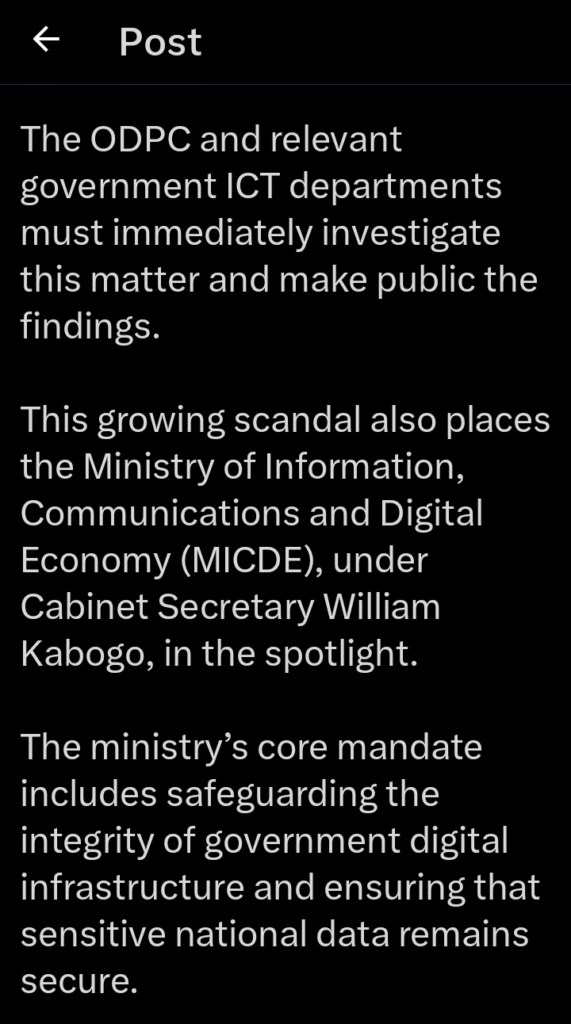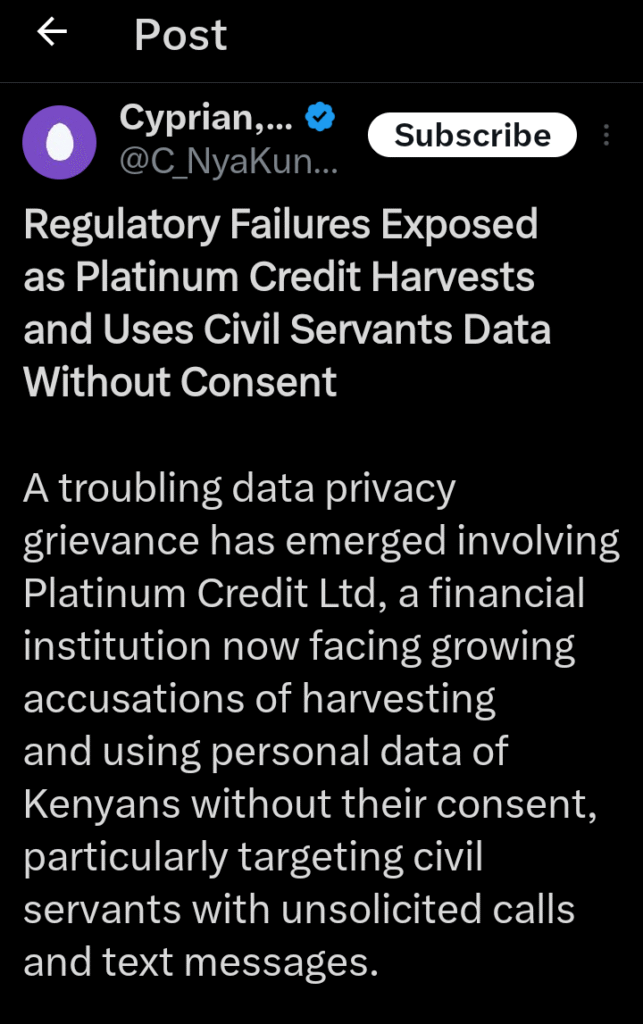A disturbing case of data abuse has surfaced involving Platinum Credit Ltd, a financial institution now facing serious accusations of using personal data of Kenyans, especially civil servants, without consent.
The company has been linked to frequent and unsolicited phone calls and text messages to individuals who have never applied for a loan or given out their personal information to the lender.

This growing concern brings to light the failure of regulatory bodies to enforce data privacy laws in Kenya. One whistleblower shared detailed evidence showing that despite having no dealings with Platinum Credit, he constantly receives calls and texts from the company.
What is more alarming is that these messages reference the exact ministry where he works, suggesting the company has direct access to employment details of civil servants across different government departments.

This raises serious questions about how this sensitive information was obtained and whether it is being leaked or sold from within government systems.
The whistleblower, who contacted blogger Cyprian Nyakundi, provided screenshots showing a conversation with a Platinum Credit agent. In the messages, the agent confidently claimed the company has full access to civil servants’ employment records.

The messages are not just random marketing they are direct, targeted, and deeply intrusive. For someone who never shared their personal information with the company, the experience is not only irritating but frightening.
The bigger issue lies in the possibility that government institutions might be involved, directly or indirectly, in sharing this data. Whether it’s through rogue insiders or compromised ICT systems, the idea that private companies can easily access personal employment data of citizens is deeply troubling.

It brings into question the effectiveness of Kenya’s data protection policies and the ability of the Office of the Data Protection Commissioner to stop such abuse.
The situation also places the Ministry of Information, Communications and Digital Economy under Cabinet Secretary William Kabogo in a difficult position. His ministry is responsible for ensuring the security of government digital systems and protecting national data. If civil servant records are leaking into the hands of private lenders, it shows a complete breakdown in cybersecurity controls.

The public deserves to know whether any government system has been hacked or whether employees within are selling information for profit.
CS Kabogo must urgently confirm the state of digital infrastructure in government and whether any breach has occurred.
The ministry must also work with ODPC to investigate Platinum Credit and force them to reveal how they got access to such personal and employment data. If Platinum Credit is indeed using this data to push loans, then the company is not just engaging in aggressive marketing it is violating privacy laws and possibly committing a crime.

The whistleblower’s message paints a worrying picture: “I have never taken a loan with them… however they have my details… they irritate so much. How did they harvest our data? Are we really safe?”
This voice represents the frustration and fear of many others who might be going through the same harassment. It is now clear that more than one person has been affected, and this could just be the beginning of a wider scandal.





















Add Comment